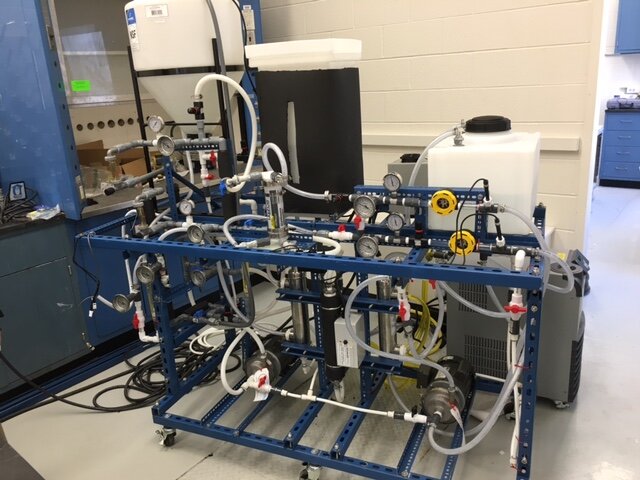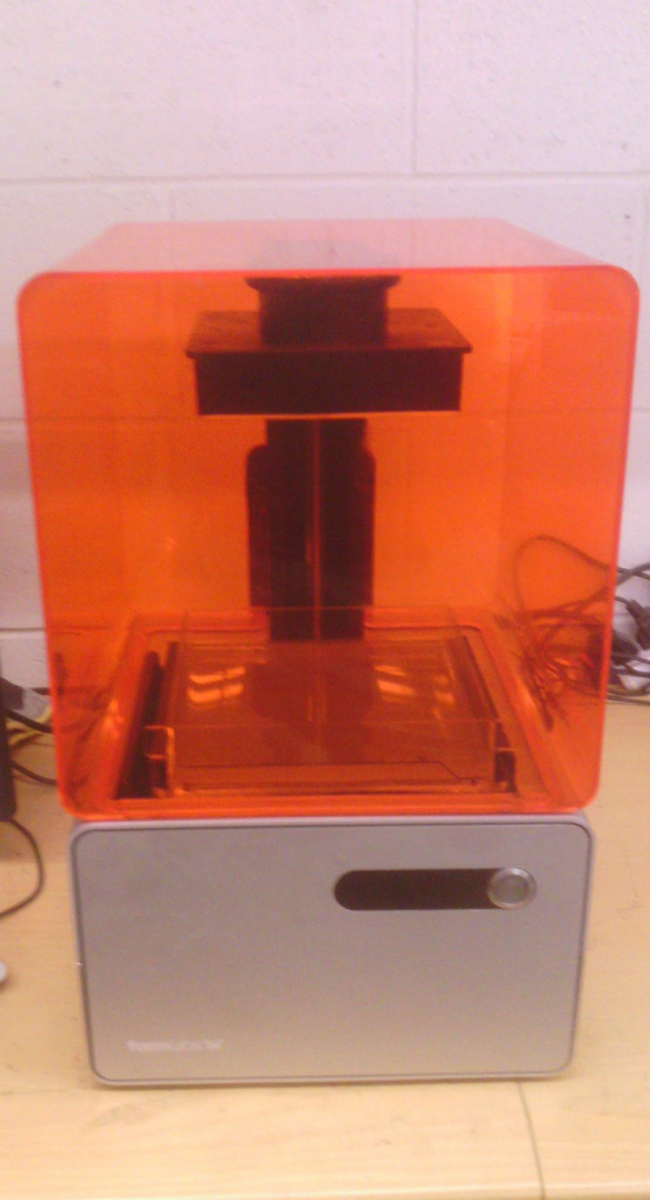UConn researchers 3-D print micro water filters
Published on by Trudi Schifter, CEO and Founder AquaSPE in Academic

The McCutcheon lab researches how to create the most efficient membranes for desalination. Desalination of water is one of the most promising water filtration technologies, and most of it is based in reverse osmosis. McCutcheon explained that part of his research looks at 3-D printing some of those materials. Photo courtesy of The McCutcheon Lab website .
Researchers at the University of Connecticut led by associate professor of chemical engineering Jeffrey McCutcheon are pioneering new ways to purify water.
The McCutcheon Lab focuses on membrane separations, which is the process of using very thin materials as tiny filters. Dr. McCutcheon explained that the lab specifically looks at membrane-based water desalination.
“We work in a topic area called membrane separations. So this covers all areas of separations, from water treatment to fuels production to gas separation. My primary core expertise is desalination and water treatment for most of my career,” McCutcheon said.

A membrane distillation element testing rig used in the lab. The McCutcheon Lab researches how to create the most efficient membranes for desalination. Photo courtesy of The McCutcheon Lab website .
Desalination of water is one of the most promising water filtration technologies, and most of it is based in reverse osmosis. Reverse osmosis is the process by which dirty water is pushed through a membrane to filter it. With the average American using 80-100 gallons of water per day, water filtration is an especially important topic in chemical engineering.
The McCutcheon lab researches how to create the most efficient membranes for desalination.
McCutcheon explained that part of his research looks at 3-D printing some of those materials.
“3-D printing is all the rage right now across all industrial sectors. Everyone wants to do what’s called additive manufacturing. We developed a way to make membranes through an additive manufacturing process which we refer to as 3-D printing because that’s the buzzword people use today,” McCutcheon said.

A Formlabs 3D Printer used in the lab. McCutcheon said 3-D printing membranes was a big breakthrough for the lab. Photo courtesy of The McCutcheon Lab website .
McCutcheon said 3-D printing membranes was a big breakthrough for the lab.
“The technology has applications beyond just water. We’re very happy talking about it now, and I have a number of students who are working in the area still,” McCutcheon said.
As for advice he would give to undergraduates interested in research, McCutcheon emphasized the importance of resilience.
“If I wanted to give a specific piece of advice, I think it’s to have a thick skin. When you’re in research, be prepared for people to tell you that all your ideas are bad … Be prepared nine times out of 10 to be told no,” McCutcheon said.
McCutcheon said that humility is key in learning from one’s mistakes.
“Always know that you don’t know everything … when I present a seminar at a school or a conference, I will then tune it or tailor it and improve it for next time. I’m constantly updating my stuff because I know I have to improve. I want all people who work in research to know that they all have to continuously improve,” McCutcheon said.
McCutcheon also encouraged students to look into the resources surrounding entrepreneurship on campus so as to spread their research to others.
“If we’re scientists, our job is to disseminate our information as much as possible and make sure it gets out there where it can do some good,” McCutcheon said.
McCutcheon emphasized the importance of using research for the benefit of the state.
“There’s an opportunity here to take what UConn does in the bowels of its research labs — across the hall, across these fancy buildings that the state’s paying for — let’s find a way to make it do something for the state.” McCutcheon said. “Our charge is to be an economic engine for the state.”
Media
Taxonomy
- Filters
- Filtration Solutions
- Filtration
- Nanofiltration
- ceramic water filters